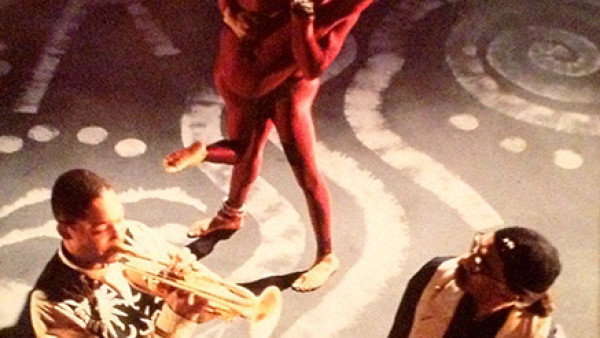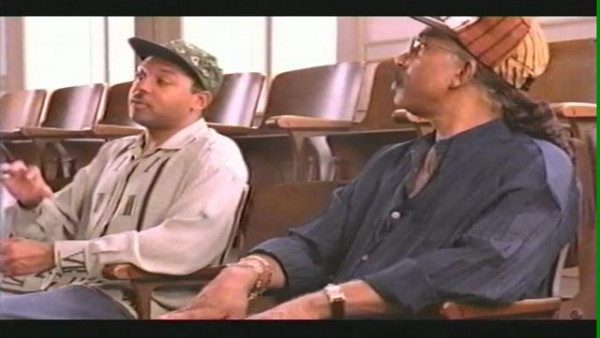Trumpeting a Marsalis Ballet
When the Wynton Marsalis Septet played Wolf Trap two years ago, it introduced a 40-minute piece of music called “Blue Interlude” that finally emerged this year as the centerpiece of the group’s brilliant new album. Sunday night at Wolf Trap, the same band introduced “Griot New York,” a full-length ballet that the trumpeter composed and recorded for Garth Fagan’s dance company last winter. The band has never played the piece straight through onstage, and Sunday it only did the first and third movements, which took 90 minutes by themselves. Nonetheless it was a rich, powerful work that should make for a great album in a year or two.
With its unceasing swing and rich harmonies, “Griot New York” didn’t disguise its debt to Duke Ellington’s extended suites and descriptive music. There were some literal elements in Marsalis’s piece — honking autos, clickety-clacking subways, wailing sirens — but most of the music caught the mood of a big city through dense, surging passages full of repeating motifs, call-and-response dialogues and carefully framed solos. It was a good 10 minutes of intricate ensemble work, in fact, before the first solo opportunity even appeared.
Although Harry Connick’s bassist Ben Wolfe was subbing for the ailing Reginald Veal, the long-term stability of Marsalis’s band was crucial to pulling off the lengthy notated score with the free-swinging vibrancy of classic jazz. All the soloists were excellent, but Wycliffe Gordon’s vocalesque trombone work stood out, as did Marsalis’s unaccompanied trumpet tribute to Buddy Bolden — an alternating series of piercing blasts and squiggly murmurs. The only weakness of the long work was an absence of arresting melodic hooks in the Ellington style, but considering how fast Marsalis is developing, those hooks shouldn’t be far off.
Opening the show was Diane Schuur, a big-voiced jazz singer who led a piano trio. She proved merely an adequate pianist, but she scatted far more often and adventurously onstage than she has on her recordings. Relying primarily on familiar standards from her recent “In Tribute” album, Schuur executed her scat solos at brisk tempos and across several octaves, but in her gimmicky bids for audience approval she often missed the dramatic essence of the songs.
By Geoffrey Himes
Source: The Washington Post




